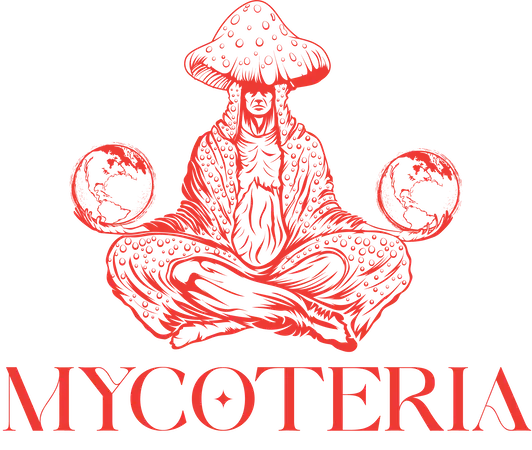Functional mushrooms are fungi known for their potential health benefits, including immune support and cognitive enhancement. Varieties such as Reishi, Lion’s Mane, and Cordyceps contain bioactive compounds that can be incorporated into dietary supplements and powders for easy consumption.
The distinct properties of each type of functional mushroom, their everyday applications, and the importance of sourcing quality products is explored in this post, below.
Short summary of the article
- Functional mushrooms, like reishi and lion’s mane, offer health benefits including immune support, cognitive enhancement, and stress management.
- Popular varieties include reishi, lion’s mane, chaga, cordyceps, turkey tail, shiitake, and maitake, each with unique benefits.
- Incorporate mushrooms into your diet through fresh sautés, dried forms, powders, or mushroom-infused broths.
- Supplements are available in various forms like capsules and powders; choose quality products with third-party testing for safety.
- Potential side effects include allergic reactions and blood-thinning effects; consult a healthcare professional if you have existing health conditions.
What Are Functional Mushrooms?
Functional mushrooms are specific species of fungi that offer potential health benefits beyond basic nutrition. They contain unique bioactive compounds that may support immune function, cognitive performance, and stress management.
Unlike culinary mushrooms, functional mushrooms are often used in supplement form, powders, or teas to leverage their therapeutic properties.
Research has indicated that varieties such as reishi, lion’s mane, and cordyceps may contain polysaccharides, triterpenes, and antioxidants that contribute to enhanced well-being. These compounds may influence the body’s physiological responses and help combat oxidative stress and inflammation.
Functional mushrooms have been used in traditional medicine practices, especially in Asian cultures. Ongoing scientific studies aim to validate their efficacy and safety for modern applications.
As interest continues to grow, it is essential for consumers to seek information from credible sources to make informed decisions regarding the incorporation of these fungi into their health regimens.
Types of Functional Mushrooms and Their Benefits
Chaga, Lion’s Mane, and Cordyceps offer distinct health benefits.
Chaga may combat oxidative stress and support immune function due to its high antioxidant content.
It may also possess anti-inflammatory properties, contributing to overall wellness.
Lion’s Mane may enhance cognitive health through its neuroprotective effects.
Compounds in Lion’s Mane may stimulate the production of nerve growth factor (NGF), essential for neuron maintenance and survival.
This mushroom is often used to improve memory and focus.
Cordyceps may boost energy levels, oxygen utilization, and stamina, making it popular in athletic supplements.
Additionally, it may enhance libido and sexual health.
Each of these functional mushrooms contributes unique benefits, making them valuable components of a holistic health regimen.
Reishi (Ganoderma lucidum)
Potential benefits of Reishi (Ganoderma lucidum) may include enhanced immune function, reduced stress and anxiety, improved mental health, anti-inflammatory effects, and antioxidant properties that may support cardiovascular health.
This adaptogenic fungus, often called the “mushroom of immortality,” has been used in traditional medicine for centuries, particularly in Asia, where it is believed to promote longevity and overall well-being.
Research suggests that Reishi may enhance the activity of white blood cells, thereby improving the body’s ability to fight infections and diseases. Its bioactive compounds, such as triterpenes and polysaccharides, are thought to contribute significantly to these therapeutic effects.
Additionally, Reishi may have potential anti-inflammatory and antioxidant properties that could help mitigate the risk of chronic diseases.
Available in various forms, including powders, capsules, and teas, Reishi can be easily integrated into daily routines.
Lion’s Mane (Hericium erinaceus)
Lion’s Mane (Hericium erinaceus) may offer potential cognitive benefits and neuroprotective properties. This unique mushroom, with its shaggy appearance, is noted for its ability to support brain health and enhance mental clarity.
Potential benefits of Lion’s Mane may include:
- Cognitive Enhancement: Lion’s Mane may promote the production of nerve growth factor (NGF), essential for the growth and maintenance of neurons, which may improve memory and learning.
- Neuroprotection: Its antioxidant properties may help protect against neurodegenerative diseases by reducing oxidative stress and inflammation in the brain.
- Mood Improvement: There is some evidence suggesting Lion’s Mane may alleviate symptoms of anxiety and depression, contributing to overall mental well-being.
Incorporating Lion’s Mane into your diet may be achieved through supplements, teas, or culinary dishes.
As research continues, this mushroom stands out as a promising ally for cognitive health and overall energy.
Cordyceps (Cordyceps militaris)
Cordyceps (Cordyceps militaris) may enhance physical performance and boost energy levels. Traditionally used in Chinese medicine, Cordyceps may improve oxygen utilization and increase ATP production, potentially leading to enhanced endurance during physical activities.
Potential benefits of Cordyceps may include reduced fatigue and improved recovery times for athletes. The active compounds, particularly cordycepin, may promote increased blood flow and oxygen delivery to muscles. Additionally, Cordyceps may possess antioxidant properties, which could help mitigate oxidative stress induced by intense exercise.
Cordyceps can be consumed in various forms, including capsules, powders, or as an ingredient in functional beverages. Recommended intake may range from 1 to 3 grams, with up to 10 grams for certain health goals. However, dosage may vary by individual, so please consult with a doctor or your personal trainer before starting any supplements.
When incorporating Cordyceps into your diet, it’s also advisable to consult a doctor, especially for individuals with underlying health conditions or those taking medications.
Drinking water is important when using supplements like Cordyceps to support overall health and performance.
Chaga (Inonotus obliquus)
Chaga (Inonotus obliquus) may support immune function, offer antioxidant properties, and help regulate blood sugar levels. Chaga is a fungus known for its potential health benefits, particularly in enhancing overall wellness. This mushroom typically grows on birch trees in cold climates and has been used in traditional medicine for centuries.
Rich in antioxidants, Chaga may combat oxidative stress and inflammation, contributing to better health outcomes.
Key benefits of Chaga may include:
- Immune Support: Chaga may enhance the immune system by stimulating the production of beneficial immune cells, helping the body ward off infections and illnesses.
- Antioxidant Properties: The high levels of antioxidants found in Chaga may protect cells from damage caused by free radicals, potentially reducing the risk of chronic diseases.
- Blood Sugar Regulation: Some studies suggest that Chaga may help regulate blood sugar levels, making it a potential ally for those managing diabetes or insulin sensitivity.
Incorporating Chaga into your routine may be done through teas, extracts, or powdered forms, allowing for versatile use in daily health practices.
Recommended intake may range from 1 to 3 grams, with up to 10 grams for certain health goals. However, dosage may vary by individual, so please consult with a doctor or your personal trainer before starting any supplements.
Additionally, drinking water is important when taking any supplements.
Turkey Tail (Trametes versicolor)
Turkey Tail (Trametes versicolor) may support immune function and offer potential health benefits. This remarkable fungus, characterized by its fan-like shape and colorful bands, has been utilized in traditional medicine for centuries.
Turkey Tail is rich in polysaccharopeptides, including PSK (polysaccharide K) and PSP (polysaccharide peptide), which may enhance the immune system’s response by stimulating the activity of immune cells like macrophages and natural killer cells.
Research indicates that these compounds may also possess anti-tumor properties, making Turkey Tail a significant focus in studies related to cancer treatment and prevention.
Additionally, Turkey Tail may provide antioxidants that combat oxidative stress and inflammation in the body. Its potential benefits may extend to gut health by promoting the growth of beneficial gut bacteria.
Turkey Tail can be consumed in various forms, including capsules, powders, and teas, allowing for easy incorporation into daily routines.
As interest in functional mushrooms grows, Turkey Tail stands out for its promising contributions to holistic health and wellness.
Shiitake (Lentinula edodes)
Shiitake mushrooms (Lentinula edodes) may offer immune support, promote heart health, and provide antioxidant properties.
- Immune Support: Shiitake mushrooms may contain polysaccharides, such as lentinans, which may boost immune function and help the body resist infections.
- Heart Health: Shiitake mushrooms may help lower cholesterol levels and support cardiovascular health due to their high levels of sterols and other beneficial compounds.
- Antioxidant Properties: These mushrooms may be rich in antioxidants, which may combat oxidative stress and reduce the risk of chronic diseases.
Incorporating shiitake mushrooms into your diet may be simple.
They may be enjoyed fresh in stir-fries, dried and rehydrated in soups, or blended into sauces, making them a versatile addition to both culinary and health-conscious practices.
Maitake (Grifola frondosa)
Maitake mushrooms (Grifola frondosa) may offer potential health benefits, including immune enhancement and blood sugar regulation. Native to Japan, China, and North America, these mushrooms thrive at the base of oak trees and are distinguished by their unique, feathery appearance.
Maitake is valued for its culinary qualities and bioactive compounds, including polysaccharides such as beta-glucans, which may contribute to their health-promoting properties. Traditionally, they are used in Asian medicine to support overall wellness.
In culinary applications, maitake mushrooms may be sautéed, roasted, or added to soups and stir-fries, imparting a rich, earthy flavor. They are also available in powdered form, which can be incorporated into smoothies or health products.
Due to their growing popularity, maitake mushrooms are now cultivated globally, making them accessible to a wider audience. As awareness of their potential benefits increases, maitake continues to establish its role in both traditional and modern health practices.
Potential Health Benefits of Functional Mushrooms
Functional mushrooms may provide valuable health benefits, including immune support, cognitive enhancement, and increased energy and stamina.
These unique fungi, such as reishi, lion’s mane, and cordyceps, are rich in essential nutrients and have adaptogenic properties that may help the body manage stress and enhance overall well-being.
- Immune Support: Functional mushrooms may contain polysaccharides like beta-glucans, which may boost immune function and help the body fend off infections.
- Cognitive Enhancement: Lion’s mane may be linked to improved cognitive function and memory, potentially promoting nerve growth and offering protection against neurodegenerative diseases.
- Energy and Stamina: Cordyceps may enhance athletic performance by increasing oxygen utilization and energy levels, making them a popular choice among athletes.
Incorporating these mushrooms into your diet may provide a natural, holistic approach to enhancing health and resilience.
As research continues to unveil their potential, functional mushrooms are increasingly recognized for their remarkable contributions to wellness.
How to Incorporate Functional Mushrooms into Your Diet
Incorporating functional mushrooms into your diet can be a simple yet effective way to harness their health benefits. These mushrooms may be consumed in various forms, including fresh, dried, powdered, or as part of culinary dishes.
One of the easiest methods is to add fresh or sautéed mushrooms to salads, stir-fries, or soups. Varieties such as shiitake, maitake, and oyster mushrooms may enhance flavor while providing nutritional advantages.
Dried mushrooms may be rehydrated and used similarly, offering a concentrated source of beneficial compounds.
Powdered functional mushrooms, such as reishi or lion’s mane, may be seamlessly integrated into smoothies, coffee, or teas. This form is particularly advantageous for those looking to boost their daily intake without significantly altering their meals.
Additionally, incorporating mushroom-infused broths or stocks into your cooking may provide a rich depth of flavor while delivering health benefits.
For those interested in culinary experimentation, consider incorporating functional mushrooms into sauces, risottos, or grain dishes.
Functional Mushrooms in Supplements
Functional mushroom supplements may enhance mental clarity, immune function, and overall health. Harnessing the power of functional mushrooms like Lion’s Mane, Reishi, and Chaga in supplement form has gained popularity among health enthusiasts. These supplements offer a convenient way to incorporate the potential benefits of these remarkable fungi into daily life.
When considering functional mushroom supplements, keep the following in mind:
- Form: Supplements are available in various forms, including capsules, powders, and tinctures. Choose a format that fits seamlessly into your lifestyle and preferences.
- Quality: Look for products that use organic mushrooms with no fillers. Third-party testing for purity may guarantee that what you consume is safe and effective.
- Dosage: Recommended intake may range from 1 to 3 grams, with up to 10 grams for certain health goals. However, dosage may vary by individual, so please consult with a doctor or your personal trainer before starting any supplements.
Incorporating functional mushroom supplements into your wellness routine may provide a supportive boost to your health, making them a valuable addition for those seeking to optimize their well-being.
Don’t forget that drinking water is important for overall health.
Are There Any Risks or Side Effects of Functional Mushrooms?
Risks and side effects of functional mushroom supplements may include allergic reactions, blood-thinning effects, and gastrointestinal discomfort. While generally considered safe for most individuals, some people may experience adverse reactions.
Allergic reactions are a primary concern, particularly for those with existing sensitivities to mushrooms. Symptoms may include skin rashes, itching, or gastrointestinal discomfort.
Additionally, certain functional mushrooms, such as reishi, may have blood-thinning effects, which may pose risks for individuals taking anticoagulant medications or those preparing for surgery.
The quality and purity of mushroom supplements may also vary considerably between brands. Contaminants or misidentified species may lead to unintended side effects. It is imperative to choose products from reputable sources that provide third-party testing results to guarantee safety and efficacy.
Lastly, individuals with underlying health conditions or those who are pregnant or breastfeeding should consult a doctor before incorporating functional mushrooms into their regimen. This precaution helps mitigate potential interactions with medications or health issues, ensuring a safe approach to using these beneficial fungi.
How to Choose the Right Functional Mushroom for Your Needs
Choosing the right functional mushroom may enhance your health and well-being. Understanding your specific needs is vital for making an informed choice.
1. Identify Your Goals: Determine what you want to achieve with functional mushrooms. Are you seeking stress relief, immune support, or cognitive enhancement?
Different mushrooms serve various purposes, so pinpointing your primary goal will guide your selection.
2. Research Mushroom Varieties: Familiarize yourself with popular functional mushrooms and their benefits.
For example, Lion’s Mane may provide cognitive support, while Reishi may help with stress reduction and sleep improvement. Understanding the unique properties of each mushroom can help align them with your health objectives.
3. Consider Quality and Source: Always opt for high-quality products from reputable sources.
Look for mushrooms that are sustainably sourced and have undergone rigorous testing for purity and potency. This may ensure that you receive maximum benefits without harmful additives.
Frequently Asked Questions
Can Functional Mushrooms Interact With Medications?
Functional mushrooms may interact with certain medications, potentially altering their efficacy or safety profiles.
Specific compounds found in these mushrooms, such as polysaccharides and triterpenes, may influence metabolic pathways, particularly those involving liver enzymes responsible for drug metabolism.
Consequently, it is essential for individuals considering the incorporation of functional mushrooms into their regimen to consult a doctor, ensuring a thorough evaluation of potential interactions with prescribed or over-the-counter medications.
Are Functional Mushrooms Safe for Children?
The safety of functional mushrooms for children may be uncertain.
While many mushrooms may be safe for adults, children’s developing bodies may react differently.
Factors such as dosage, specific mushroom type, and individual health conditions may need to be considered.
It’s important to consult a doctor before introducing any form of functional mushrooms into a child’s diet to ensure safety and appropriateness for their unique needs.
How Do I Know if Mushrooms Are Organic?
To determine if mushrooms are organic, look for certification labels from recognized organic standards, such as the USDA Organic seal.
These certifications may indicate that the mushrooms have been grown without synthetic pesticides, herbicides, or genetically modified organisms.
Additionally, purchasing from reputable suppliers who prioritize organic practices may provide further assurance.
Always inquire about farming practices if the information is not readily available on packaging.
Can I Grow Functional Mushrooms at Home?
Yes, you can grow functional mushrooms at home.
It requires careful attention to the cultivation process, including selecting the appropriate mushroom species, sourcing quality spores or spawn, and providing a suitable growing environment that maintains the necessary humidity and temperature.
Various methods, such as using pre-made grow kits or creating a substrate from natural materials, may be available for home cultivation.
Proper sanitation and monitoring may be essential to guarantee a successful and healthy mushroom harvest.
What Is the Shelf Life of Functional Mushroom Products?
The shelf life of functional mushroom products may vary based on form and storage conditions.
Dried mushrooms may last from 1 to 3 years when stored in a cool, dark, and dry place.
Powdered forms may retain potency for up to 2 years, while extracts in liquid form may have a shelf life of 1 to 2 years.
Always check the manufacturer’s guidelines for specific products to guarantee ideal quality and effectiveness.
Takeaways
Functional mushrooms may offer significant health benefits, including immune support, cognitive enhancement, and increased energy. Types such as Reishi, Lion’s Mane, and Cordyceps may provide unique properties that can be beneficial when incorporated into daily routines. Quality and sourcing may impact their effects, so careful consideration is essential. Recommended intake may range from 1 to 3 grams, with up to 10 grams for certain health goals. However, dosage may vary by individual, so please consult with a doctor or your personal trainer before starting any supplements.
Thank you for reading.






